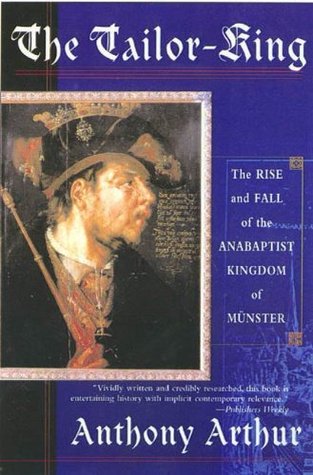More on this book
Kindle Notes & Highlights
Read between
June 11 - June 21, 2025
Many scholars have addressed themselves to this particular story both in Europe and in America, but there have been few successful efforts to reach a wide audience with a readable, yet reliable narrative. What follows is such an attempt.
Many of the more moderate leaders who abjured violence were martyred, leaving a gap in the leadership that was often filled by men of little education but much passion.
Church and state should be separate, but people owed obligations to both. The Anabaptists denied any such obligation. As the self-proclaimed Elect of God, they acknowledged allegiance to no authority but their own: not to the city, not to the state, and certainly not to any established Church, be it Roman or Lutheran.
But what made the Anabaptists particularly dangerous was their unshakable conviction that the world was about to end soon in the bloody Second Coming of Christ, as foretold in the Book of Revelation.
But when Luther translated the Latin Bible into everyday German, the first version of the New Testament appearing in 1522, he released millions from dependence on the priests for their instruction.
He—with rare exceptions, such as Joan of Arc, such leaders are always men—derives his authority not from rules or traditions but from devout followers, disciples who believe in his personal qualities.
Both charismatic leaders and their followers need constant reassurance that they are pursuing the right course of action because the world around them insists that they are wrong.
Regimes based on intimidation and terror frequently collapse not from the bottom but from the top, as presumably loyal supporters are revealed to have ideas and ambitions of their own.
The most dangerous follower is he whose defection would destroy the whole party: that is to say, the best follower. —Friedrich Nietzsche
Who can deny, after considering human behavior past and present, the pervasive appeal of the irrational, of the desire, if only in fantasy, to wield total power over others, of furious resentment at mistreatment and resulting revenge fantasies?
What makes them worth remembering is that they were the precursors and to some degree the progenitors of the political and religious violence that have become so much a part of our world today.


